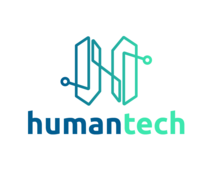
Research Departments
- Agents and Simulated Reality 2
- Augmented Vision 1
- Cognitive Assistants 1
- Cognitive Social Simulation 1
- Cyber-Physical Systems 3
- Experience-based Learning Systems 1
- Innovative Factory Systems 1
- Institute for Information Systems 1
- Intelligent Networks 1
- Smart Data & Knowledge Services 1
Research Topics
- Autonomous Systems 3
- Data Management & Analysis 5
- Human-Machine Interaction 4
- IT Security 1
- Image Recognition & Understanding 3
- Language & Text Understanding 1
- Machine Learning & Deep Learning
- Other 3
- Robotics 1
- Sensors & Networks
- Virtual & Augmented Reality 1
Fields of application
- Environment & Energy 5
- Farming & Agricultural Technology 1
- Health & Medicine
- Industrie 4.0 4
- Mobility 5
- Other 4
- Smart Home & Assisted Living 5
- Trade & Logistics 1
Search narrowed by:
Displaying results 1 to 10 of 11.
Research Departments
- Agents and Simulated Reality 2
- Augmented Vision 1
- Cognitive Assistants 1
- Cognitive Social Simulation 1
- Cyber-Physical Systems 3
- Experience-based Learning Systems 1
- Innovative Factory Systems 1
- Institute for Information Systems 1
- Intelligent Networks 1
- Smart Data & Knowledge Services 1
Research Topics
- Autonomous Systems 3
- Data Management & Analysis 5
- Human-Machine Interaction 4
- IT Security 1
- Image Recognition & Understanding 3
- Language & Text Understanding 1
- Machine Learning & Deep Learning
- Other 3
- Robotics 1
- Sensors & Networks
- Virtual & Augmented Reality 1
Fields of application
- Environment & Energy 5
- Farming & Agricultural Technology 1
- Health & Medicine
- Industrie 4.0 4
- Mobility 5
- Other 4
- Smart Home & Assisted Living 5
- Trade & Logistics 1






